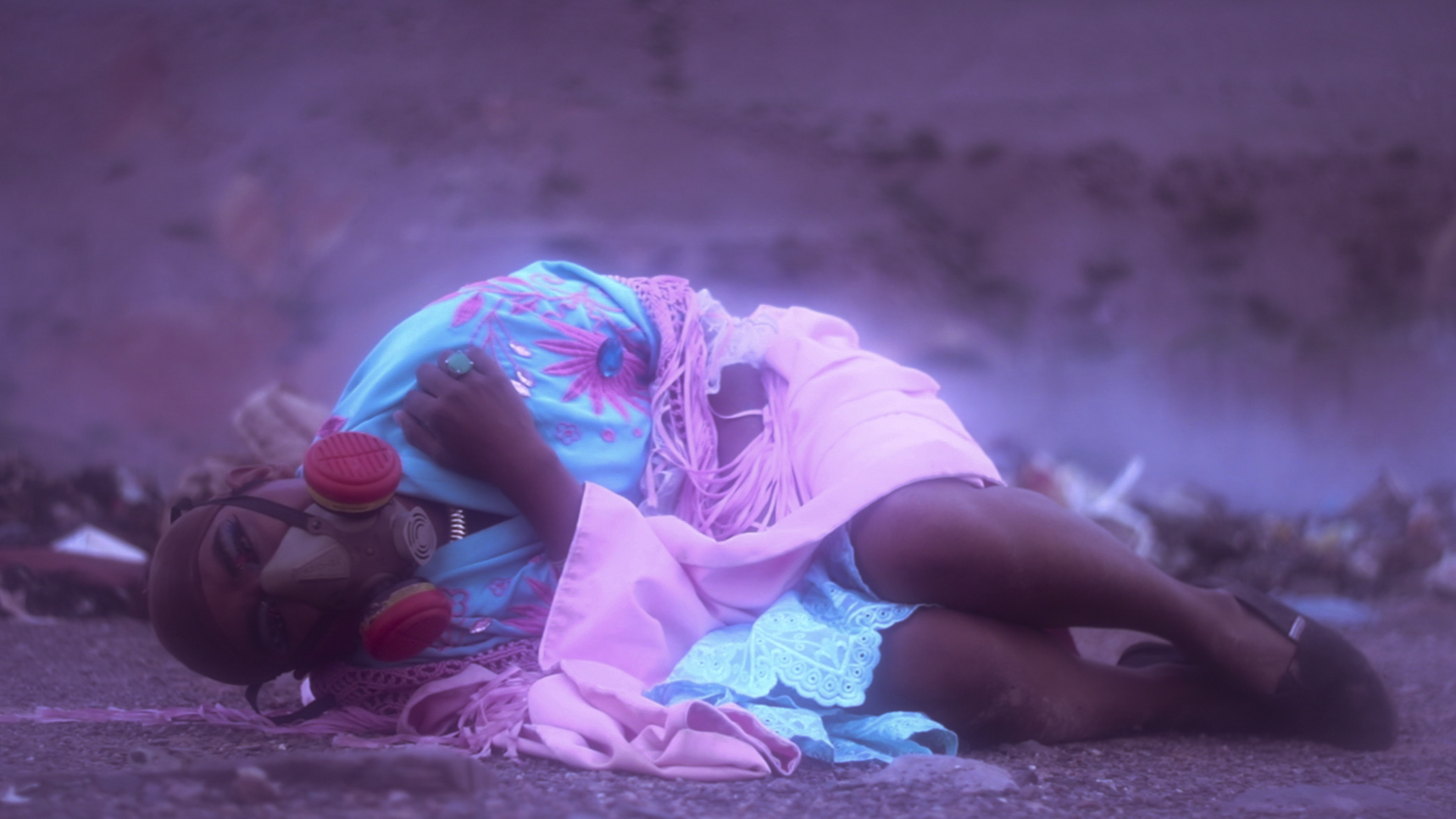Bartolina Xixa is an alter ego created in 2017 by the artist and dancer Maximiliano Mamani, who was born in 1995 in the province of Jujuy in north-western Argentina. Performing as a drag queen, Xixa is an homage to the Bolivian revolutionary leader Bartolina Sisa Vargas (c. 1750–1782), a woman from the Indigenous Aymara ethnic group who, together with her husband Túpac Katari (c. 1750–1781), fought in the 18th century against the colonial occupation of what is now Peru and Bolivia and who was ultimately executed by the Spanish military. Taking on the persona of Bartolina Xixa, Mamani critically examines issues including gender stereotypes, colonialism, racism, environmental destruction and illegal land grabbing in Latin America.
In the video Ramita Seca, La Colonialidad Permanente (Dry Branch. The Permanent Colonialism), Xixa is attired in traditional robes and dances in the middle of a rubbish dump. The song, whose music and lyrics are by the folk singer Aldana Bello, ends with the haunting verse: “We are the waste that this hygienic and aseptic world does not want to see. We are the ones who pay the ecological debts of those who squander us and transact in power”. In the tradition of the Argentinian ‘Vidala’, a folkloric dance accompanied by singing, Xixa delineates an image of rebellion against exploitation in the former colonies. The video was filmed in the Quebrada de Humahuaca valley in the province of Jujuy, a region in which local Indigenous peoples were for centuries denied recognition and access to resources and which was declared a World Heritage Site by UNESCO in 2003.
–gk

